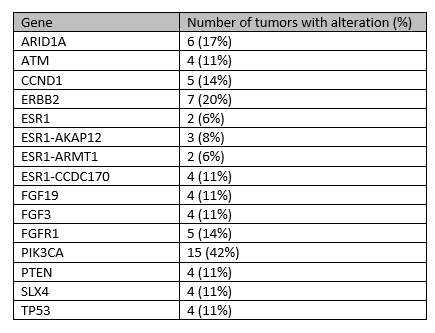
University of Illinois Cancer Center researchers reported molecular findings that may help explain why Black women with hormone receptor positive breast cancer are more likely to die from early stage disease.
Dr. Yael Simons and her co-authors received a prestigious merit award for their work, highlighted at the 2021 American Society of Clinical Oncology (ASCO) annual meeting, being held virtually June 4-8. The team analyzed hormone receptor positive (luminal) tumor specimens from 35 Black breast cancer patients and found 60 gene alterations, including several changes linked to endocrine resistance.
“Untreated tumors from Black patients showed a higher than expected number of mutations in endocrine resistance genes. Alterations in these particular genes are typically seen in late stage, previously treated breast cancer and suggest more aggressive and treatment resistant disease,” Simons said.
The significantly lower survival rate for Black women with breast cancer is often attributed to diagnosis at a later stage of disease and higher rates of triple-negative breast cancer, a subtype with a poorer prognosis. However, more recent data has shown a higher mortality rate for Black women even with hormone dependent breast cancer diagnosed at an early stage.

“Typically, patients with luminal breast tumors have favorable prognoses because we have a number of targetable drugs to treat this subtype,” Simons added. “By looking at the tumor biology of these Black patients, we identified a higher frequency of mutations associated with resistance to these drugs, which may explain the mechanism driving these racial differences in outcomes.”
The underlying cause of these molecular changes remain unknown, and the investigators plan to conduct further sequencing studies on a larger sample size.
